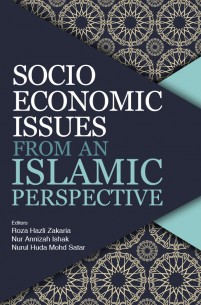Islam is a religion where its teaching goes beyond religious
ritual. Aside from how to perform the various rituals such as
praying, fasting and performing hajj, Islam do provide guidance
on the entire system of life that comprises politics, economics
and social affairs. The authentic sources, al-Quran and Sunnah,
provides guidelines in terms of individual consumption, businesses’
productions, financial institutions’ operation principles up to
government’s administration matters. In other words, the Creator
has sent down a complete guideline in dealing with politics,
economics and social issues with the ultimate aim, to achieve social
and economic justice for all.
Nonetheless, the world today is characterizes by chaotic
development, be it from social, economic or political dimensions.
We are experiencing various social and economic issues at both
the micro and the macro level. Households are consuming
conspicuously which leads to issues such as overconsumption.
Banks are overextending financing in their effort to profit from nonperforming
borrowers. Governments are overspending in order to
pursue populist policies so that they could retain power. Collectively,
all these have led to various issues such as unequal income
distribution, extreme poverty, over indebtedness and moral decline.
This book aims to explore some economic and social issues in the
society from the Islam point of view. It will also provide Islamic
explanation as to what led to the emergence of those issues and the
solution that Islam offers to mitigate those problems. It starts by
discussing the issue of inequality and poverty; and the instruments
and measures to mitigate poverty that is zakah. Then, the book
also discusses Shariah compliance financial tools as an alternative
to riba. Next, the social issue of conspicuous consumption and the
importance of good faith is being discussed.
Write a review
Your Name:Your Review: Note: HTML is not translated!
Rating: Bad Good
Enter the code in the box below:




